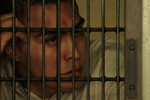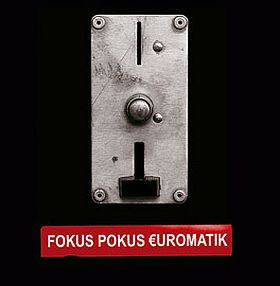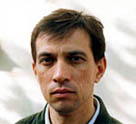


Peter Greenaway: Cinema is Dead

From without and from within the cinema is dying, if not already dead. You shoot a dinosaur in the head on a Monday but the goddamned animal is so big and clumsy and stupid it will not roll over till when? We have to decide – will it roll over on the Wednesday, the Thursday, next Friday? The shooting date for this dinosaur was the 31st September 1983 when the zapper, or the remote control, entered the living-rooms of the world. We introduced interactivity, we introduced audience choice and the cinema cannot deal with that, when it is a phenomenon watched by a crowd sitting still in the dark, looking in one direction. Man is not a nocturnal animal, two-thirds of the world is behind your head, who sits still like that in any other circumstances, and the democracy of the crowd is usually wrong.
Cinema is Dead, Long Live the Screen. The Post Graduate Department at The National Film School of Denmark and CPH:PIX proudly present a one day seminar with Peter Greenaway.
From without and from within the cinema is dying, if not already dead. You shoot a dinosaur in the head on a Monday but the goddamned animal is so big and clumsy and stupid it will not roll over till when? We have to decide – will it roll over on the Wednesday, the Thursday, next Friday? The shooting date for this dinosaur was the 31st September 1983 when the zapper, or the remote control, entered the living-rooms of the world. We introduced interactivity, we introduced audience choice and the cinema cannot deal with that, when it is a phenomenon watched by a crowd sitting still in the dark, looking in one direction. Man is not a nocturnal animal, two-thirds of the world is behind your head, who sits still like that in any other circumstances, and the democracy of the crowd is usually wrong.
We know that socially, economically, politically the cinema is not what it was in 1983. You know now that when you watch just the first ten minutes of a film what is going to happen, what sort of film it is going to be, you know the emotional spectrum, you have almost certainly been there before, you know the moral drift, you know the genre. All the cinema’s stories have been used up. We are endlessly repeating ourselves now in a tired pastiche way, being film directors not making films, acting cinema, not making it, being conductors, not composers, making other people’s films, not our own.
My fascination for the medium of cinematic language is primarily aesthetic, and cinema has been wounding itself aesthetically too long. We must get rid of the four tyrannies of the text, the frame, the actor and the camera. All four were inherited from other media and never subsumed, never reinvented. In melancholy moments I believe not only that cinema is now dead, it was never alive. It has remained still-born.
However there is a brand new cinema (we are going to have to find another name) waiting to explode. It is already trickling in. A post digital cinema – a second-Gutenberg, Information-Age cinema, a different media, a different presentation, a different outlook, a television-fed and watered creature, capable of interactivity and a multi-media presentation, to be consumed en masse but privately, at every viewer’s own selected time and place. And the population of the world in six and a half billion, and rising. And 95 per cent of this six and half billion people no longer go to the cinema. Now we have to find and encourage this audience to manufacture and view this new cinema. This audience is already out there, flexing its muscles, waiting for total immersion. You are not going to find it wasting its time in cinemas, in film festivals when the world comes to you and you do not have to come to the world. Picasso, the greatest visualist of the 20th century, said, “I paint what I think, not what I see”. Cinema is waking up to this credo. We need to put new wine into new bottles. We must learn to think out of the cinematic box, not lazily inside it.
The Cinema is Dead, Long Live the Screen.







